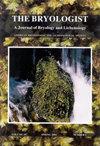棕色苔藓的再生及其修复
IF 1.5
4区 生物学
Q4 PLANT SCIENCES
引用次数: 1
摘要
摘要在大规模恢复沼泽后,通常观察到棕色苔藓的建立率较低。由于棕色苔藓是沼泽泥炭堆积的重要组成部分,其低回收率在过去十年中一直备受关注。通过识别限制褐苔藓建立和恢复的因素,建议采用沼泽恢复方法,即苔藓层转移技术(MLTT)进行沼泽恢复。在这项研究中,我们根据三个可能在恢复过程中产生影响的因素评估了四种常见棕色苔藓的再生潜力,这四种苔藓分别是沼泽红藓、星叶绿藓、Scorpidium cossonii和Tomentypnum nitens:1)碎片在苔藓顶端以下的距离,2)苔藓的机械破碎,以及3)提高营养物质的可用性,在生长室(培养皿内)和现场实验中。在受控条件下,研究的所有四种棕色苔藓都获得了类似的结果:苔藓的严重碎裂极大地提高了它们的再生潜力。即使在最低剂量下施磷也能增加苔藓的再生,棕色苔藓在顶端以下的前3厘米表现出更高的恢复率。黎明只促进了紫檀的再生。然而,当在现场进行处理时,获得了不清楚甚至矛盾的结果,在现场观察到,由于普遍存在的不利环境条件(如侵蚀、冻胀、低水位),棕色苔藓的总体数量非常低。将我们的一些结果直接应用于MLTT的适应版本可能具有挑战性,因为它可能需要一定程度的精细性,而大规模的机械修复无法提供这种精细性。本文章由计算机程序翻译,如有差异,请以英文原文为准。
Towards the regeneration of brown mosses for fen restoration
Abstract. A low rate of establishment in brown mosses is generally observed following large-scale restoration of fens. As brown mosses are important components in peat accumulation in fens, their low recovery rate has been a concern in the past decade. It was suggested that the restoration method used for bogs, the Moss Layer Transfer Technique (MLTT) should be adapted for fen restoration by identifying factors limiting the establishment and recovery of brown mosses. In this study, we evaluated the regeneration potential of four common brown mosses, Aulacomnium palustre, Campylium stellatum, Scorpidium cossonii and Tomentypnum nitens, according to three factors that can have an impact during restoration: 1) distance of the fragment below the moss apex, 2) mechanical fragmentation of mosses, and 3) enhanced nutrient availability, and this, in growth chambers (within Petri dishes) and field experiments. Under controlled conditions, similar results were obtained for all four brown mosses studied: the severe fragmentation of mosses most drastically improved their regeneration potential. Phosphate fertilization, even at the lowest dose, increased moss regeneration, and brown mosses showed higher recovery in the first 3 cm below the apex. Liming only improved the regeneration of C. stellatum. However, unclear, and even contradicting results were obtained when treatments were applied in the field, where an overall very low establishment of brown mosses was observed in response to the rather prevailing adverse environmental conditions (e.g., erosion, frost heaving, low water table level). The direct application of some of our results into an adapted version of MLTT might be challenging, as it may require a certain level of meticulosity that large-scale mechanical fen restoration cannot provide.
求助全文
通过发布文献求助,成功后即可免费获取论文全文。
去求助
来源期刊

Bryologist
生物-植物科学
CiteScore
2.40
自引率
11.10%
发文量
40
审稿时长
>12 weeks
期刊介绍:
The Bryologist is an international journal devoted to all aspects of bryology and lichenology, and we welcome reviews, research papers and short communications from all members of American Bryological and Lichenological Society (ABLS). We also publish lists of current literature, book reviews and news items about members and event. All back issues of the journal are maintained electronically. The first issue of The Bryologist was published in 1898, with the formation of the Society.
Author instructions are available from the journal website and the manuscript submission site, each of which is listed at the ABLS.org website.
All submissions to the journal are subject to at least two peer reviews, and both the reviews and the identities of reviewers are treated confidentially. Reviewers are asked to acknowledge possible conflicts of interest and to provide strictly objective assessments of the suitability and scholarly merit of the submissions under review.
 求助内容:
求助内容: 应助结果提醒方式:
应助结果提醒方式:


